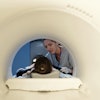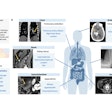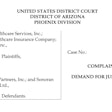
Online news portal Vox continues find radiology in its sights as it takes aim at runaway healthcare costs. In a January 14 article, the site criticized jargon that hospitals use to describe radiology services -- in particular MRI -- as an example of why healthcare charges are so hard to understand.
Health editor Sarah Kliff took note of a new rule implemented this year by the Trump administration that requires hospitals to list on their websites the prices they charge for their most common procedures. The idea is to make healthcare costs more transparent by letting patients know exactly what they can expect to pay for their care.
But the pricing information can be hard to find, Kliff wrote. And even when patients do find it, services can be described in jargon that only a specialist might understand -- like "2-D ECHO TTE COMP NO CONTRST" to describe an MRI scan, as found on the website of George Washington University Hospital.
"I couldn't tell you what a '2-D ECHO TTE COMP NO CONTRST' is, and I'm guessing that most patients couldn't either," Kliff wrote. "And even if I knew what a '2-D ECHO TTE COMP NO CONTRST' was, it's not clear that knowing its price to be $2,283 would help me much either."
The code was on a 4,920-row spreadsheet of costs at the hospital; the list also included nuggets such as "*XR ABD DECUB/ERECT 3V" and "3D CT RENDER WITH POSTPROCESS."
On the positive side, Kliff pointed to a California law that requires hospitals to provide charges for their 25 most common procedures in a format that's easy for patients to understand. What's more, the lists are all available on a single website run by the state, which means patients don't have to spend time hunting for them on separate websites.
Zuckerberg San Francisco General Hospital, for example, uses terms such as "CT Scan, abdomen, with contrast," and "MRI, Brain, without contrast, followed by contrast."
"What I like about this data is that it's written in plain English," Kliff wrote. "You can understand what medical services the different prices actually correspond to."



















